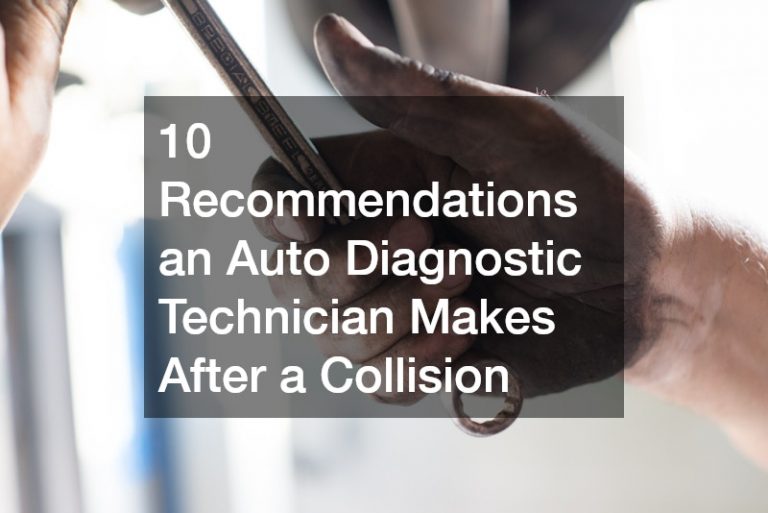

When it comes to car repair, manual transmission shops play a crucial role in ensuring the smooth functioning of your vehicle’s transmission system. These specialized shops offer a range of services specifically tailored to manual transmissions, providing expertise and knowledge that may not be found in a general auto repair service. In this article, we will explore the importance of manual transmission garages, how they can service your vehicle effectively, and what makes them distinct from other auto repair services, including major collision repair shops and local windshield companies.
1. What is a Manual Transmission Shop?

Transmission shops are specialized auto repair facilities focusing on servicing manual transmission systems in vehicles. These shops employ mechanics who have specific expertise in manual transmissions and are trained to diagnose and repair issues that may arise with these systems.
The services offered by manual transmission shops include transmission rebuilds, clutch repair and replacement, fluid changes, and general maintenance of manual transmission systems. These shops are equipped with the tools and knowledge necessary to handle the intricacies of manual transmissions.
Mechanics at transmission shops are highly skilled and have a deep understanding of how manual transmissions work. They are able to diagnose problems accurately and recommend appropriate solutions to ensure that your manual transmission functions properly.
2. Why Should I Go to a Manual Transmission Shop?
Visiting a manual transmission shop is crucial for anyone experiencing issues with their manual transmission. These shops offer specialized knowledge and expertise that may not be available at a general auto repair service or even at a major collision repair shop.
By going to a manual transmission shop, you can benefit from the focused attention and care that your manual transmission requires. The mechanics at these shops understand the intricacies of manual transmissions and can provide tailored solutions to address any problems.
Choosing not to visit a manual transmission shop can pose risks to your vehicle’s transmission system. Without the specialized knowledge and experience of manual transmission mechanics, you may not receive the level of service needed to effectively repair your manual transmission.
3. How Do I Know if My Vehicle Needs Manual Transmission Service?

There are several signs that indicate your vehicle may need manual transmission service. These include grinding noises when shifting gears, difficulty shifting, slipping gears, or a burning smell coming from your transmission.
Regular maintenance of your manual transmission is also important to ensure its longevity and performance. By following the manufacturer’s recommended maintenance schedule and getting your transmission checked regularly, you can prevent major issues from arising.
If you notice any of the signs mentioned above or if your vehicle is due for regular maintenance, it is advisable to visit a manual transmission shop to have your transmission inspected and serviced as needed. The mechanics at these shops can assess the condition of your transmission and recommend the appropriate course of action.
4. What Services Do Manual Transmission Shops Offer?
Manual transmission shops offer a wide range of services to address various issues that may arise with manual transmissions. One of the primary services provided by these shops is transmission rebuilds, which involve disassembling the transmission, inspecting all components, and replacing any worn or damaged parts.
In addition to transmission rebuilds, they also specialize in clutch repair and replacement. The clutch is a critical component of a manual transmission system, and regular maintenance and timely repairs are essential to prevent costly damage.
Fluid changes and general maintenance are also important services offered by these shops. Maintaining the proper levels of transmission fluid and ensuring that the transmission is in good working order are essential to the overall performance of your vehicle.
Unlike a major collision repair shop, which might focus on bodywork and structural repairs after accidents, manual transmission shops concentrate on the internal workings of your vehicle’s transmission system. These shops also handle aftermarket transmissions, offering upgrades or replacements that can enhance vehicle performance. By providing specialized services tailored to manual transmissions, these shops ensure that your vehicle remains reliable and efficient on the road. This specialization is crucial for addressing specific transmission issues that general auto repair services might overlook.
5. How Long Does Manual Transmission Service Take?

The time it takes to service a manual transmission can vary depending on several factors, including the extent of the repairs needed, the availability of parts, and the workload of the shop. Some manual transmission services may be completed in a few hours, while others may take several days to complete.
Complex procedures, such as a transmission rebuild or sourcing rare aftermarket transmissions, can extend the duration of the service. Additionally, the shop’s efficiency and experience play a crucial role in determining how quickly the service can be completed.
Typically, manual transmission shops strive to provide quick and efficient service to minimize downtime for customers. Communication with the shop during the service process is essential to ensure that you are aware of the progress and any unexpected delays that may arise.
Before scheduling service at a manual transmission shop, it is advisable to inquire about the estimated turnaround time for the specific services you require. This will help you plan accordingly and make alternate transportation arrangements if needed. Being proactive about understanding the timeline can also help manage expectations and reduce any inconvenience caused by extended repair periods.
6. What Should I Look for in a Manual Transmission Shop?
When choosing a manual transmission shop, there are several key factors to consider to ensure that you receive quality service for your vehicle. One important factor is the certification and experience of the mechanics at the shop.
Reputation and reviews from previous customers can also provide valuable insights into the quality of service offered by a manual transmission shop. A shop with a positive reputation and satisfied customers is more likely to provide reliable and trustworthy service.
Warranty and guarantees offered by a manual transmission shop are also important considerations. Knowing that the shop stands behind its work and is willing to address any issues that may arise can give you peace of mind when entrusting your vehicle to their care.
7. How Much Does Manual Transmission Service Cost?

The cost of transmission repair services can vary depending on the type of service required, the complexity of the repairs, and the shop’s labor rates. Factors such as the need for new parts or additional repairs can also impact the overall cost of service.
On average, manual transmission services such as transmission rebuilds, clutch repairs, and fluid changes can range from a few hundred to several thousand dollars. It is essential to get a detailed quote from the manual transmission shop before authorizing any work to ensure that you are aware of the total cost.
Auto insurance may cover some of the costs associated with manual transmission service, depending on your policy and the nature of the repairs needed. Checking with your insurance provider can help you determine what services are covered and what out-of-pocket expenses you may incur.
8. Can Manual Transmission Shops Work on All Makes and Models?
While transmission shops specialize in servicing manual transmissions, they may have expertise in certain makes and models of vehicles. Some manual transmission shops may focus on specific brands, such as Lexus repairs, and offer specialized services tailored to those vehicles. Manual transmission garages are generally adaptable to different transmission systems and can work on a variety of makes and models. However, it is essential to communicate with the shop about your vehicle’s specific needs to ensure that they have the expertise and tools required to service your manual transmission effectively.
If you have a unique or rare vehicle that requires specialized manual transmission service, it is advisable to inquire with the shop about their experience working on similar vehicles and their ability to meet your specific needs. Some shops might even handle aftermarket transmissions or specialized components.
9. What Should I Expect During My Visit to a Manual Transmission Shop?
During your visit to a manual transmission shop, you can expect the mechanics to conduct an initial diagnostic assessment of your transmission system. This assessment may include a visual inspection, test drive, and diagnostic tests to identify any underlying issues. After the diagnostic assessment, the mechanics will explain the recommended services and repairs needed to address the issues with your manual transmission. They will provide you with a detailed breakdown of the work required, including the cost and timeline for completion.
Transparency in pricing and timeline is essential during your visit to a manual transmission shop. The mechanics should communicate clearly and openly about the services being performed, the costs involved, and any potential delays or additional repairs that may arise during the service process.
10. How Can I Maintain My Manual Transmission After Service?
Following the recommended maintenance schedule provided by your manual transmission shop is crucial to maintaining the longevity and performance of your manual transmission. Regular fluid changes, clutch inspections, and general maintenance can help prevent major issues from arising.
Driving habits also play a significant role in the health of your manual transmission. Avoiding aggressive shifting, excessive idling, and sudden stops can help prolong the life of your transmission and reduce the risk of premature wear and damage. If you have any concerns or notice any changes in your manual transmission after service, it is essential to address them promptly with the manual transmission shop. Communication with the shop about any issues or questions you may have can help prevent more significant problems from developing.
11. Comparing Transmission Shops to Other Auto Repair Services
Manual transmission shops differ significantly from other types of auto repair services. For instance, a major collision repair shop focuses on restoring vehicles after accidents, dealing primarily with body damage, structural repairs, and sometimes windshield replacements through local windshield companies. On the other hand, an automatic transmission shop specializes in automatic transmission systems, which require different skills and tools compared to manual transmissions.
While a major collision repair shop is essential for extensive bodywork and ensuring your vehicle looks and performs well after an accident, manual transmission shops provide the focused expertise required to maintain and repair the intricate components of a manual transmission. Additionally, auto repair services often offer a broader range of services but may not have the specialized knowledge needed for complex manual transmission issues.
12. Integrating Other Essential Auto Services
It’s important to recognize that maintaining a vehicle involves a comprehensive approach that includes various specialized services. For instance, local windshield companies are vital for addressing any glass damage, ensuring clear visibility and safety. Similarly, visiting a self car wash regularly can help maintain your vehicle’s exterior, preventing rust and corrosion that might lead to more significant issues over time.
In contrast, an automatic transmission shop is the go-to place for issues specific to automatic transmissions, offering services that transmission shops might not provide. Additionally, seeking out specialized services for car repair, such as transmission rebuild and aftermarket transmissions, ensures that your vehicle operates efficiently and safely. These distinctions highlight the importance of choosing the right specialist for your vehicle’s specific needs. Regular maintenance visits to various specialists, including local windshield companies and automatic transmission shops, complement the expertise of major collision repair shops and manual transmission shops, ensuring your vehicle receives comprehensive care. By integrating these essential auto services, you can maintain the overall health and longevity of your vehicle, making it safer and more reliable on the road.
Conclusion
In conclusion, manual transmission shops are essential for servicing your vehicle’s transmission system effectively. These specialized shops offer expertise, knowledge, and tailored solutions that may not be available at a general auto repair service or even at a major collision repair shop. By visiting a manual transmission shop, you can ensure that your manual transmission receives the care and attention it needs to function optimally.
Remember to follow the recommended maintenance schedule, communicate openly with the shop, and address any concerns promptly to maintain the longevity and performance of your manual transmission. This comprehensive approach will help keep your vehicle in top condition, ensuring a smooth and reliable driving experience.






